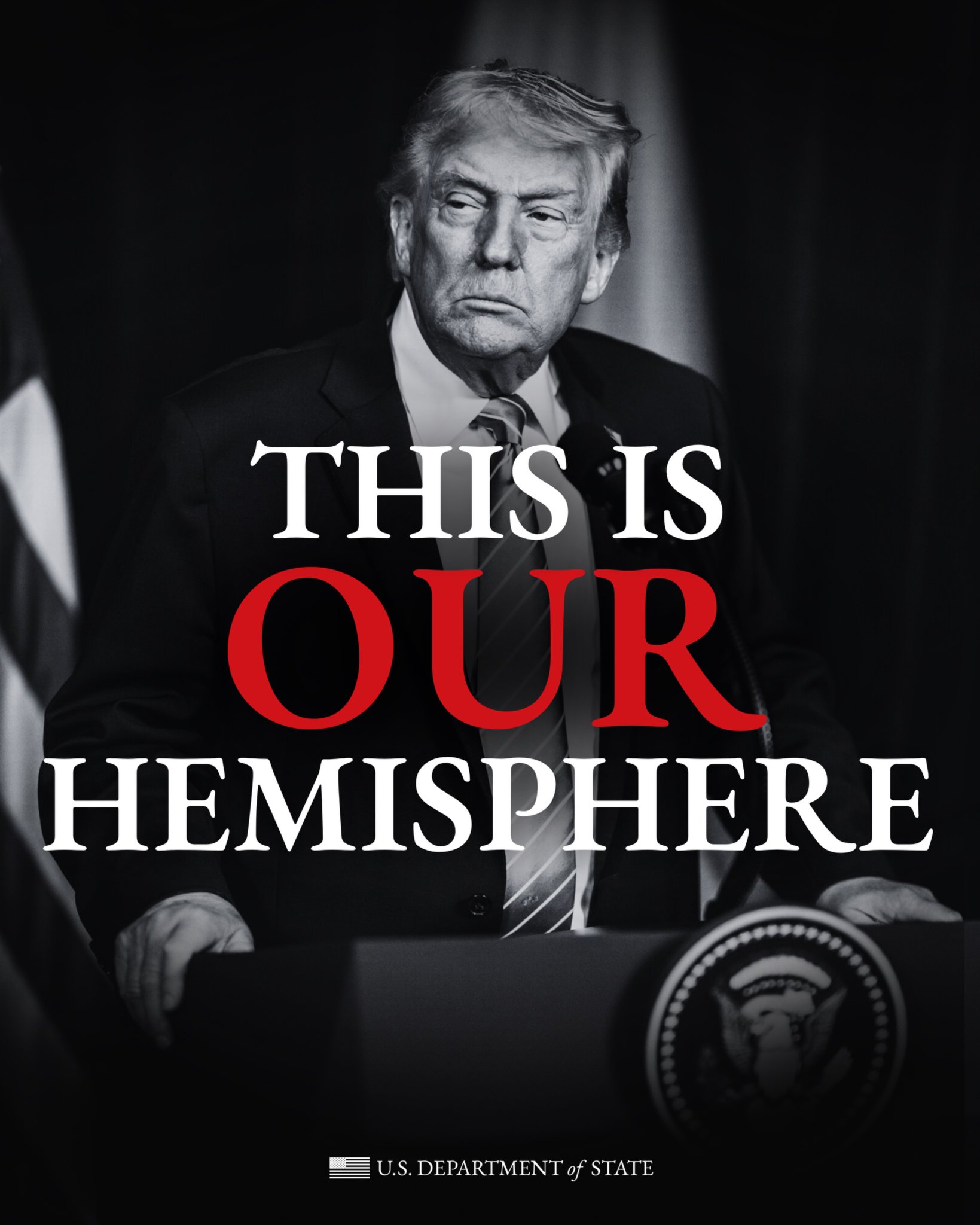The World in Focus | Analysis column
On Oct. 10, Dina Boluarte was removed from the presidency for “permanent moral incapacity”, a legal concept found in Article 113 of the Peruvian Constitution that serves as a sort of catch-all provision allowing the opposition to remove presidents who lack a majority through a procedure as simple as gathering enough votes.
In the last ten years, Peru has had eight presidents. Most of them were removed from office and several share the same prison: Alejandro Toledo, extradited from the United States; Ollanta Humala, Pedro Castillo, and, until shortly before his death, Alberto Fujimori. To avoid this indignity, Alan García committed suicide in 2019. Pedro Pablo Kuczynski, who is 86 years old, is subject to restrictions on his movements and is prevented from leaving the country.
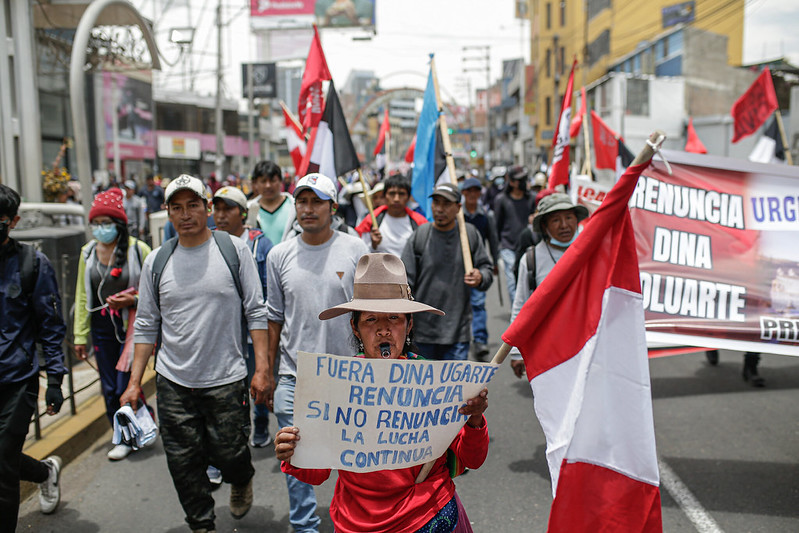
Boluarte, who was vice president and a political ally of Pedro Castillo, assumed the presidency after Castillo’s failed attempt to dissolve Congress. Castillo was removed from office and lost his immunity, which normally lasts up to five years after leaving office, as soon as he read the proclamation and ordered the closure of Congress on Dec. 7, 2022. He was ordered to “preventive prison” for 36 months, the maximum applicable, without a final sentence having yet been handed down. His lawyer, Argentine Guido Croxatto, has denounced that the Congress of the Republic removed him from office illegally, without respecting due process established by the Constitution. Among other things, only 101 votes were obtained instead of the 104 required to remove a president from office. According to Croxatto, there can be no criminal proceedings for a non-existent removal, so the current trial would be a sham and Castillo would be arbitrarily imprisoned.
However, technically Congress did not need to remove Castillo from office in order to initiate the trial since it is not a requirement. Article 117 of the Constitution expressly states that the president can be impeached “for dissolving Congress.” With that, the process initiated by the judiciary would be legal.
In this context, Boluarte never had full legitimacy. Mexico and Colombia never recognized her presidency. Once in power, she acted as a puppet of Fujimorism and the right-wing and far-right parties in Congress, enacting all the laws that allowed them to take over the electoral power, the Ombudsman’s Office, and the Constitutional Court, paving the way for them in the general elections scheduled for April 2026. In exchange for being useful to these political forces, the corruption charges against Boluarte before she assumed the presidency were shelved in Congress, preventing the Public Prosecutor’s Office from investigating her.
Boluarte has been replaced by the current president of Congress, José Jerí, 38, a member of Somos Perú, a center-right party. Jerí is facing investigations for alleged sexual abuse, disobedience to authority, and illicit enrichment, which has led some congressmen to file motions to censure the Parliament’s Board of Directors and change the president of the republic again. The selection is not easy. Of a total of 130 congressmen, 102 have criminal cases against them.

During her presidency, Boluarte faced seven motions to remove her from office that were blocked by the authoritarian and conservative alliance that supported her. This increased public discontent, making her the most unpopular president in Latin America, with an approval rating of just 3%. Congress’s approval rating is even lower.
Why did Congress support her? If Boluarte had been removed from office, the president of Congress who took over would have had to immediately call new presidential and congressional elections. But the right-wing political forces she defeated at the polls alongside Pedro Castillo in 2021, and with whom she later formed a strong alliance, needed time to implement their plan to take over the powers of the state through changes in legislation and the Constitution. The reforms they passed are also designed to guarantee their impunity in the face of the multiple criminal charges pending against them. This group was joined by Castillo and Boluarte’s radical left-wing party, split into Perú Libre and the Bloque Magisterial, which voted in favor of the measures approved by the authoritarian coalition in exchange for small perks for the sectors they represent, impunity and the ability to keep their juicy salaries for a while longer.
But time passes, and the situation is not the same today. Since Boluarte called for elections, her removal means that elections will not be brought forward. Ergo, Congress will continue to function until July 28 of next year. Nothing could be more convenient at the start of the elections campaign period than to distance themselves from a president rejected by the population and to embrace citizens’ demand that she be removed from office–at first, for not having called elections immediately after succeeding Pedro Castillo, then for her responsibility in the more than 50 deaths that occurred in the protests that took place as a result of the demonstrations demanding her resignation and early elections. More recently, for the increase in crime, extortion, contract killings, and criminal violence.
It was in this context that the trigger that expelled Boluarte from the Government Palace appeared: a shooting attack on the popular musical group Agua Marina at a concert in Lima, in which four musicians and a vendor were injured. After four years of passing pro-crime laws, suddenly the violence became intolerable for congressmen. A few months earlier, the murder of the singer of the musical group Armonía led to the only censure of a minister, in this case the Minister of the Interior. Boluarte did not fall then because new elections would have had to be called.
According to Human Rights Watch, Peru is one of the countries in the region where violent deaths have increased the most. This phenomenon is not unique to Peru, although several factors combine here to aggravate the situation. A corrupt state with little control; the growing presence of illegal activities in addition to drug trafficking, such as illegal mining, which has become a main interest for criminal groups as gold prices soar; and the internationalization of crime, as organized gangs spread throughout the region and increase their presence in the country.
Boluarte’s betrayal
Although Dina Boluarte did not come to power in a coup following Castillo’s failed self-coup, Boluarte rapidly distanced herself from Castillo and did not call for new elections. She abandon her origianl political principles and also allied herself with Fujimorism and right-wing parties.
Boluarte’s betrayal of the popular will sparked outrage, especially among people in regions of the country who had voted for Castillo and witnessed the systematic campaign that Fujimorism and right-wing sectors organized against him during the 16 months of his government. This led to widespread protests demanding Boluarte’s resignation and new elections. Many organizations also called for Castillo’s release among their demands.
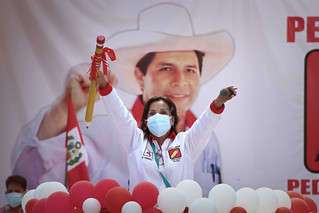
Thousands of citizens mobilized in their regions and marched toward the capital, especially from the southern highlands. Boluarte accused the protesters of being financed by drug traffickers, illegal miners, and political activists from neighboring Bolivia. She also accused the marches of being made up of remnants of the Shining Path terrorist group and sent in the army and police to suppress them, resulting in 50 people killed and 1,400 wounded by gunfire from the security forces. Amnesty International states that “this is undoubtedly one of the most serious episodes of human rights violations in Peru’s recent history.” These events alienated her from the indigenous, peasant, and leftist sectors that brought her to power as Castillo’s vice president, and from broad democratic sectors of the country. Boluarte had become Dina the murderer.
With Boluarte’s departure from the government, it will be up to the next Congress to decide whether to proceed with the cases against her that are currently open in the Public Prosecutor’s Office after the five years of political immunity granted her as a former president. The most important is for the 50 deaths that resulted from the repression of the protests in 2022 and 2023. This is followed by various corruption charges, such as receiving valuable jewelry and Rolex watches in exchange for granting budgets to the regional governor of Ayacucho, or for money laundering as a member of the criminal organization “Los dinámicos del centro” (The Dynamics of the Center), which collected money to pay for the civil damages of Vladimir Cerrón, founding leader of the Peru Libre Party that Castillo and Boluarte belonged to. Cerrón is currently a fugitive from justice. Boluarte is also being prosecuted for using the presidential car to facilitate Cerrón’s escape.
Pedro Castillo’s mistakes
Pedro Castillo’s victory in 2021 gave voice to broad sectors of the country’s citizenry– the most vulnerable, especially in the highlands and the jungle, and the middle classes who did not succumb to the campaign of terror that insisted that a Castillo victory would bring communism and a return of the Shining Path. The most extraordinary thing was that he prevailed over the media machine, economic power, the unscrupulous campaign of fake news on social media, and the unequal coverage of the two contending forces (Castillo versus Keiko Fujimori). Castillo was the victim of a destabilization campaign during the election—he was accused of fraud—and during his term in office. Not only did Congress refuse to grant him permission to attend international events, but it also constantly questioned and censured his ministers.
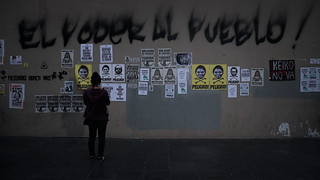
However, Castillo did not govern with transparency. He received and negotiated with businesspeople and operators in private locations, who then benefited from the awarding of state contracts in their favor. He involved his family in patronage deals with state funds and was denounced for charging fees for police and military promotions. He set aside many of his promised measures, such as the second agrarian reform, loans and technical assistance to small producers not part of the large agro-export chains, an increase in the education budget, tax reform, and the convening of a Constituent Assembly to draft a new Constitution that would allow for changes to the economic chapter, particularly the subsidiary role of the state in business activity. Castillo lacked the political support to carry out these reforms, and with an approval rating of less than 30%, he was far from fighting for them. His goal of changing society was replaced by surviving in government.
Economic dictatorship
Dina Boluarte’s removal does not bring a sense of relief to a society punished by extortion and the increasing presence of organized crime, amid ever-decreasing social investment, poor public services, growing levels of informal employment, and deep inequalities.
In fact, the drama of Peruvian society is disguised by the “success” of its economy, based on the fact that it has maintained the same neoliberal economic model for 35 years, regardless of the government in power. Balancing fiscal and macroeconomic accounts and attracting investment without any guidance have been the slogans that an efficient technocracy has managed to maintain at a high social cost, with high levels of corruption among the ruling elite and political parties and the disaffection of citizens with democracy.
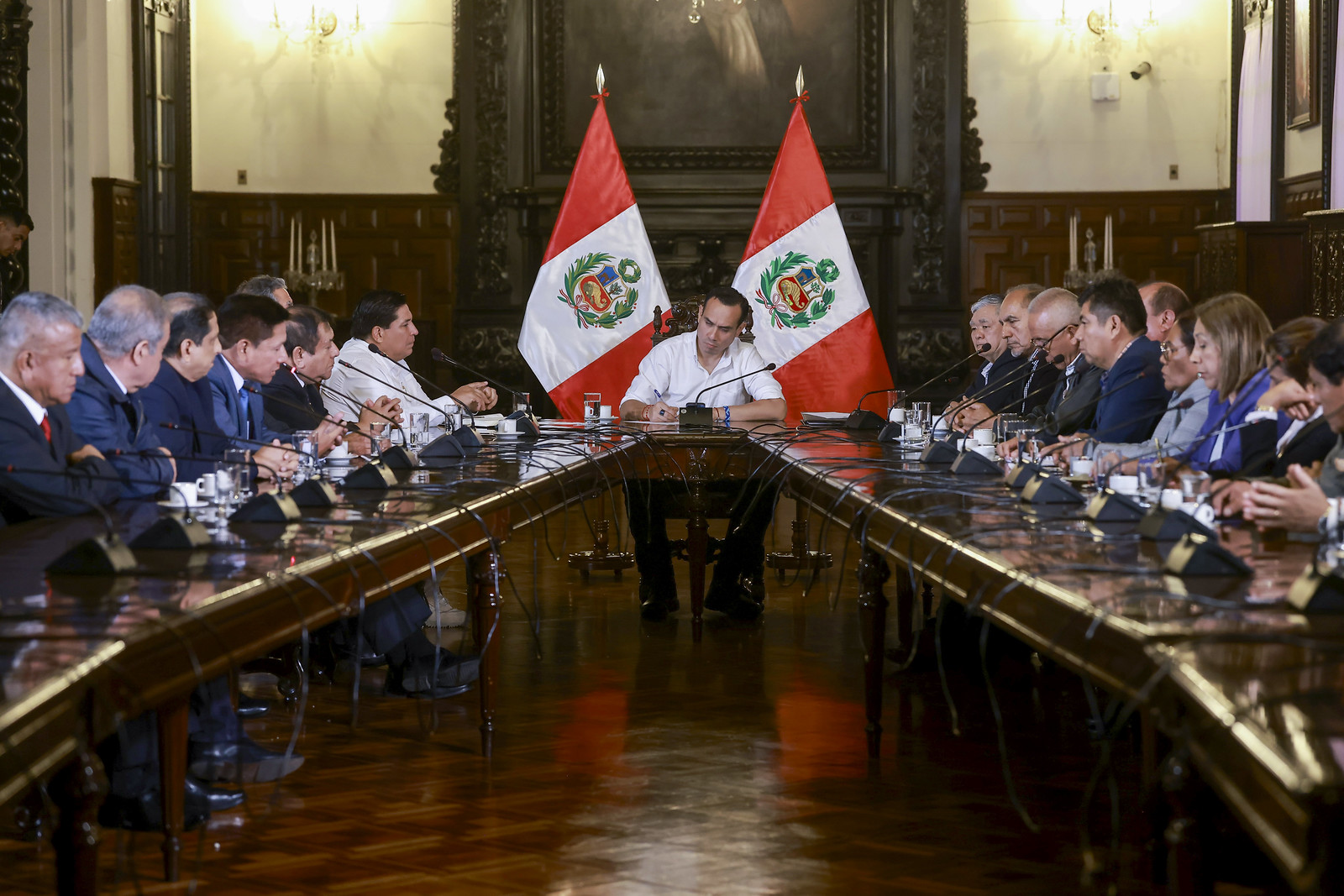
The death of a 32-year-old hip hop singer, shot by a police officer, and another 28-year-old in a coma after a massive, nationwide march on Oct. 15th show the continuation of authoritarian and repressive policies under President Jerí and the forces of the conservative alliance in Congress. These events fuel discontent and feed despair. Street demonstrations continue, especially among young people, who are now demanding Jeri’s resignation and an “independent” person from Congress as interim president until the April 2026 elections, justice for the protesters who were killed, and an end to corruption. Given his track record, it is likely that Presiden Jerí will be censured. As he is a congressman, only a simple majority vote in Congress is required. But that does not solve anything. The elections do not generate expectations; they have lost credibility in such a murky scenario.

“The World in Focus” is Ariela Ruiz Caro’s biweekly column for Mira: Feminisms and Democracies. Ariela Ruiz Caro is an economist with a master’s degree in economic integration processes and an international consultant on trade, integration, and natural resources at ECLAC, the Latin American Economic System (SELA), and the Institute for the Integration of Latin America and the Caribbean (INTAL), among others. She has served as an official of the Andean Community, advisor to the Commission of Permanent Representatives of MERCOSUR, and Economic Attaché at the Embassy of Peru in Argentina.

